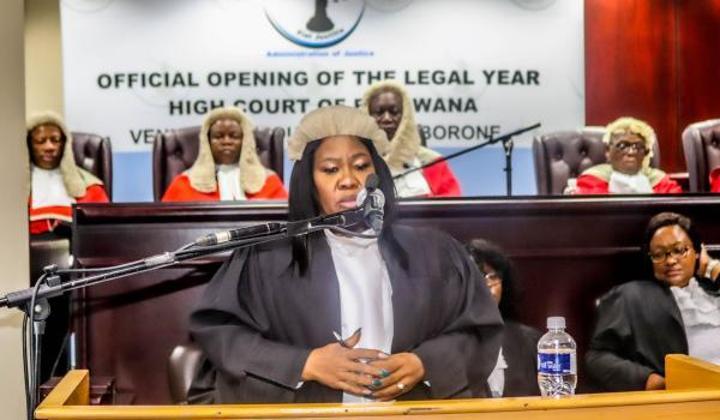Africa-Press – Botswana. In a savingram to the communications ministry, the Attorney General has questioned the wisdom of proposing “for there to be several bodies regulating cybersecurity”.
Botswana’s proposed cybersecurity law is facing early turbulence after the Attorney General raised red flags over several provisions submitted by the Ministry of Communications and Innovation.
It has emerged that the AG has questioned the legal soundness and practicality of several elements in the draft submitted by the ministry and cast doubt over its current form.
Key concerns
One of the key concerns raised in a savigram to the ministry relates to the multiple regulatory bodies proposed under the law, with the Attorney General warning that this could create confusion and regulatory overlap.
The AG’s critique suggests a need for clearer delineation of roles or consolidation of oversight functions to avoid bureaucratic inefficiencies.
“You have proposed for there to be several bodies regulating cybersecurity, such as the Botswana Cybersecurity Centre of Excellence, National Cybercrime Commission, NCC Secretariat, National Competent Authority and the National Cybersecurity Commission,” the AG stated.
Not “fit and proper” businessperson
“What role will all these other bodies be playing in the regulation of cybersecurity issues? We advise that if you create so many bodies or organisations under one law, you risk the duplication of functions.”
Another major issue flagged pertains to a clause to deny a cybersecurity licence to any businessperson deemed not “fit and proper.” The AG has questioned the ambiguity of this standard, reportedly asking, “How is this going to be determined?”
Championed by the Ministry as a crucial step in safeguarding Botswana’s digital infrastructure, the proposed law,
now faces the challenge of aligning with constitutional standards and ensuring clarity in enforcement mechanisms.
Licences, permits, permissions
Getting down to the brass tacks, the Attorney General seeks clarification of several aspects of the Bill.
“Please provide us with the details on which services shall be licensable services under the law; Kindly clarify on the definition of ‘essential services’ under Clause 2 of your instructions,” the savigram requested. “Is this definition meant to be different from the one provided under the Trade Disputes Act (Cap. 48:02)?”
The AG pressed on: Under clause 7 (3) (u), “you propose that there will be issued licences, permit, permission, concession, permission, concession, authorities, etc. However, you have only provided for the procedure on the issuance of licences”.
“Under what circumstances will permits, permissions, concessions and authorities be issued? Kindly confirm whether you agree with the penalties that we have provided for in the Bill.”
Consequential amendments
Further, the Attorney General has asked to be provided with “the definitions of ‘critical sector’, ‘digital technology’, ‘digital service’, and ‘digital product’”.
The ministry should confirm whether there are going to be any consequential amendments to this law such as in the Cybercrime and Computer Related Crimes Act, the Communications Regulatory Authority Act or any other law that may be impacted by enactment of this law.
“Kindly note that if there are any consequential amendments to be made, they need to be done as soon as possible,” said the Attorney General’s savingram.
For More News And Analysis About Botswana Follow Africa-Press






